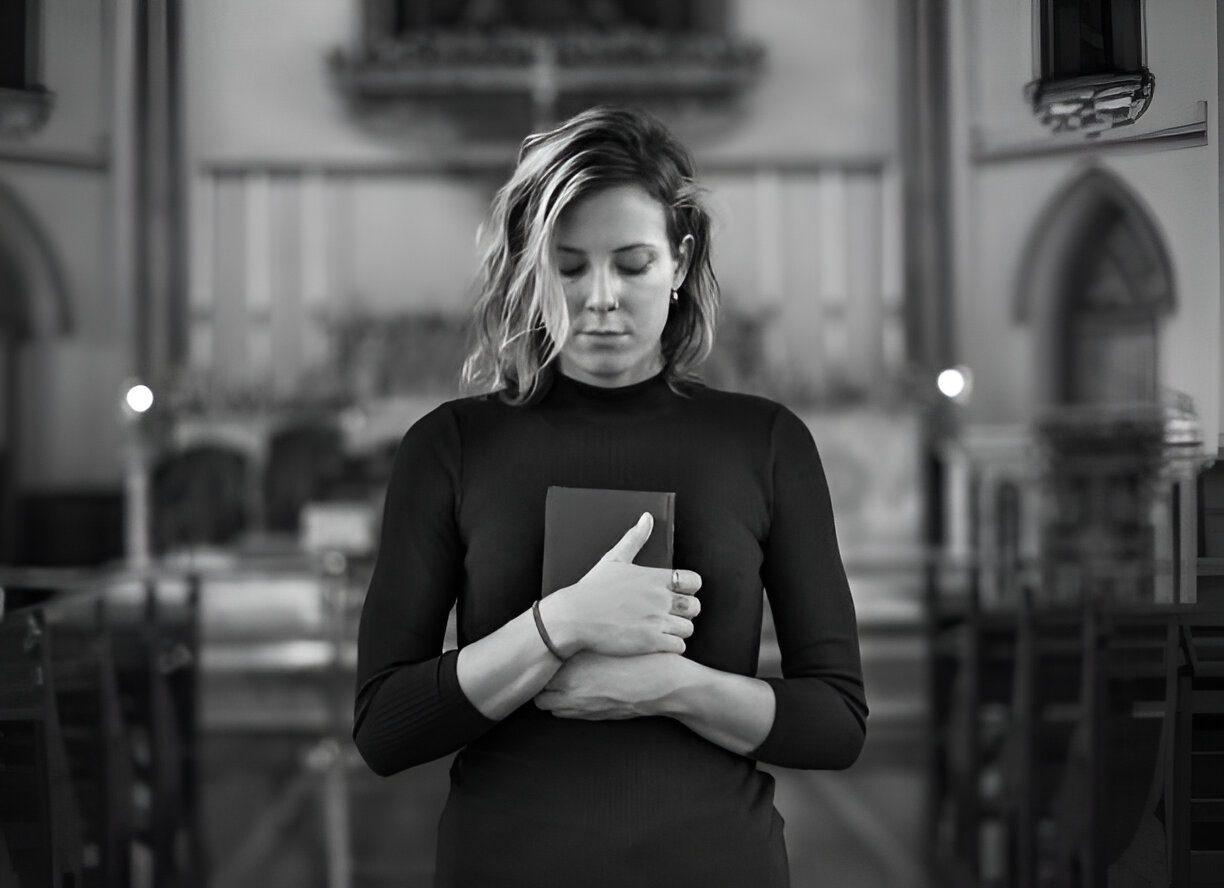The Heartache That Tests Our Faith
Grief weighs heavily on mind and body, often shaking the very foundations of daily life—and, for many, prompting deep spiritual questioning. Yet faith can become the steadfast core holding you together, offering comfort, strength, and the hope that loss is not the end. Whether grieving a dear loved one, a broken relationship, or another profound life change, faith-based coping can provide the roadmap to healing. Through prayer, scripture, community, and trust in God’s plan, it becomes possible to navigate sorrow with both resilience and grace.
When Loss Confronts Faith: Finding Spiritual Strength in the Midst of Mourning

Grief often challenges every part of us—
emotional, physical, and spiritual. For those rooted in faith, heartbreak can deepen dependence on God’s presence or, at times, spark a crisis of belief. Yet faith traditions remind us that suffering can carry meaning, that healing is possible, and that God journeys with us through the valley of sorrow. Faith does not erase grief, but it illuminates a path forward—assuring us that pain isn’t the end of the story.
The Role of Faith in Grief
Faith offers a framework for understanding and enduring loss, fostering solace, perspective, and a sense of divine companionship in mourning. Many religious teachings highlight that while grief is inevitable, healing remains possible, and God (or a higher power) is near to the brokenhearted.
Faith does not remove pain, but it provides a beacon of hope, reminding believers that sorrow can transform rather than consume.
Surrendering to God’s Plan
One of the hardest aspects of grief is accepting the unchangeable. Loss may incite questions, doubts, even anger toward God. Still, faith-based perspectives often emphasize that even in suffering, God is sovereign. Laying grief at His feet can ease the burden, trusting there’s purpose beyond our current sight.
- 📖 Scripture for Strength: “Trust in the Lord with all your heart and lean not on your own understanding.” — Proverbs 3:5
- 🙏 Prayer Practice: When overwhelmed, try a prayer of surrender, like “God, I place my sorrow in Your hands.”
🎭 Analogy: Picture yourself ascending a steep mountain loaded with a heavy backpack. Faith is the moment you set it down before God, trusting Him to carry the weight you cannot.
Finding Comfort in Prayer and Meditation
Grief often isolates, but prayer links us directly with God. Through spoken petitions, silent reflection, or meditative prayer, hearts can find renewal and calm.
✅ Guided Prayer: Carve out time daily to openly share your grief with God.
✅ Breath Prayer: Inhale while thinking “God, grant me peace,” exhale while thinking “I release my sorrow to You.”
✅ Meditative Scripture Reading: Focus on a short Bible passage, repeating it gently, letting its essence dwell in you.
📖 Biblical Comfort: “The Lord is close to the brokenhearted and saves those who are crushed in spirit.” — Psalm 34:18
📝 Personal Reflection:
A grieving father recalled, “I used to pray out of routine. But after losing my daughter, prayer turned into my lifeline. Sometimes, no words came—only silence. Yet in that silence, I knew God was present.”
Practicing Gratitude Even in Pain
Gratitude doesn’t ignore sorrow—it acknowledges small lights in the darkness. By noticing pockets of goodness, we remember God’s steadfast presence, even when life feels broken.
- ✅ Daily Gratitude Journal: Each evening, note three blessings—no matter how small (a kind friend’s text, a beautiful sunrise, a verse that consoled you).
- ✅ Shift Perspective: Thank God not just for what’s lost, but for what was given—memories, love, lessons.
📖 Biblical Perspective: “Give thanks in all circumstances; for this is God’s will for you…” — 1 Thessalonians 5:18
🎭 Analogy: Gratitude acts like a candle flame in a dark room—tiny, but enough to remind you that light endures.
“I felt so lost after my husband died, but opening my Bible each morning brought a calm I couldn’t find anywhere else. It reminded me I wasn’t alone, that God was still with me, even in my darkest hour.”
— Hannah Sinclair
Reading and Reflecting on Scripture
The Bible holds abundant hope and reassurance for those in mourning:
- ✅ For Comfort: “Blessed are those who mourn, for they will be comforted.” — Matthew 5:4
- ✅ For Strength: “He will wipe every tear…no more death or mourning or crying or pain.” — Revelation 21:4
- ✅ For Hope: “Weeping may stay for the night, but rejoicing comes in the morning.” — Psalm 30:5
🎭 Analogy: Scripture is a lamp in the night—though the path of grief is shadowed, these verses guide each step forward with flickers of divine light.
Engaging in Worship and Fellowship
Grief drives many to isolate, yet faith communities can uplift and encourage in sorrow. Joining others in worship or group prayer fosters a sense of shared comfort and belonging.
- ✅ Attend Services: Being in a spiritual setting can offer moments of sacred rest.
- ✅ Join a Grief Ministry: Many faith-based groups offer specialized support or counseling.
- ✅ Consult a Spiritual Leader: Speaking with a pastor, rabbi, imam, or mentor can ease doubts and affirm hope.
📖 Biblical Reminder: “Carry each other’s burdens, and in this way, you will fulfill the law of Christ.” — Galatians 6:2
📝 Personal Reflection:
A widow noted, “I avoided church after my husband died—I was furious with God. But when I finally returned, I realized I wasn’t alone. Others had faced this valley and reminded me faith could still anchor my hurting heart.”
Serving Others as a Path to Healing
Many faiths teach that helping others fuels spiritual and emotional restoration. Purpose through service can transform personal grief into wider compassion.
- ✅ Write Letters of Encouragement to people also mourning.
- ✅ Volunteer at a charity or faith-based outreach.
- ✅ Pray for Another Mourner: Holding someone else’s sorrow in your heart can gently shift your focus from pain to empathy.
📖 Faith in Action: “Give, and it will be given to you.” — Luke 6:38
📝 Personal Reflection:
One bereaved mother volunteered at a children’s hospital after losing her son. “I went in believing I’d help them,” she noted, “but they ended up helping me heal.”
Holding Onto the Promise of Eternal Life
For believers in an afterlife, faith holds a hope—that death is not the conclusion, but a passage to reunion and eternal peace.
- ✅ Faith Reflection: Contemplate scriptural promises of Heaven or life beyond.
- ✅ Encouraging Scripture: “I am the resurrection and the life…the one who believes in me will live…” — John 11:25
🎭 Analogy: Faith upholds that grief is not “goodbye,” it’s “see you later.”
Things To Try This Week
Daily Prayer of Surrender
-
- Pause each morning or evening to say: “God, I place my sorrow in Your hands. Guide me.” Even a brief prayer can align your heart with divine comfort.
Scripture or Devotional Reading
-
- Pick a favorite verse or devotional each day, letting its truth settle in. Jot down any insight or reassurance it brings.
Send a Kind Note or Prayer
-
- If you know someone else grieving, reach out with a short encouraging message or commit to praying for their well-being, merging your own healing with empathy for others.
Conclusion
Finding Peace in Faith
Grief is never easy, yet faith provides a foundation, a beacon, and a source of healing strength. Through prayer, scripture, worship, gratitude, and even service, those who mourn can discover comfort and purpose. While sorrow may not vanish instantly, faith reassures that no one grieves alone—that God’s presence accompanies every tear, and joy can re-emerge in due time.
🎭 Final Analogy: Think of grief as a storm—faith is the anchor holding your ship steady until the skies clear, guiding you toward calmer seas.
You are not alone in your grief—God is near, and healing is possible.
When sorrow shakes your spirit, faith offers a guiding light—comfort, direction, and the promise you need not journey alone.
Through prayer, scripture, and genuine fellowship, your faith can bolster both heart and soul, even in the darkest valleys of grief. Explore our cherish collections below for meaningful resources, faithful keepsakes, and communities of support, reminding you that hope and solace remain—even as you mourn.
More Reflections, More Growth
Loss is complex, and the road to healing is different for everyone. These reflections offer insight, support, and guidance as you navigate this journey.
Chronic Illness and the Grief That Follows: Learning to Accept a New Normal
Chronic illness creates an ongoing form of grief as individuals navigate the loss of their former life. This article explores the emotional toll, coping strategies, and the path to acceptance and a new normal in the face of illness.
When the Mind Mourns: Navigating Grief After an Alzheimer’s Diagnosis
A diagnosis of Alzheimer’s triggers anticipatory grief and emotional loss. This article offers guidance for coping with the sorrow of seeing a loved one’s personality fade and maintaining meaningful connections through Alzheimer’s care.
Holding Onto Hope: Coping with the Emotional Toll of a Cancer Diagnosis
A cancer diagnosis brings overwhelming emotions—fear, sadness, and anger. Learn how to cope with the emotional toll of cancer, find resilience, and hold onto hope during this challenging journey.
The Physical and Emotional Symptoms of Grief: Understanding the Whole-Body Impact
Grief affects both the mind and the body, leading to emotional struggles and physical symptoms like fatigue, sleep disturbances, and aches. This guide explores the signs of grief and offers coping strategies for managing its impact on your emotional and physical well-being.
Disenfranchised Grief: Mourning Losses That Society Overlooks
Disenfranchised grief refers to mourning losses that society does not acknowledge, making the grieving process more difficult. This guide offers strategies to validate and cope with grief when your loss is not openly recognized or supported.
The Grief Before Goodbye
Anticipatory grief occurs before a loved one’s passing and involves emotional preparation for loss. This guide explores the unique challenges of anticipatory grief, offering strategies for emotional support, self-care, and creating lasting memories with loved ones.
The Five Stages of Grief: A Comprehensive Guide
The five stages of grief—denial, anger, bargaining, depression, and acceptance—are a well-known framework for understanding the emotional journey of loss. This guide delves into each stage, explaining how grief unfolds and emphasizing the personal nature of the grieving process.
The Science of Sorrow: What Happens in the Brain When We Grieve
Grief isn’t just an emotional experience—it’s a biological one that rewires the brain. This guide explores the science behind grief, shedding light on how the brain processes loss and adapts to life after a loved one’s passing.
The Invisible Line Between Grief and Depression
Grief and depression can overlap, but understanding the key differences is crucial. This article explores how grief is a natural response to loss, while depression is a mental health condition, offering guidance on when grief may need additional support.
Explore Journeys of Healing and Solace:
Discover dedicated spaces that offer understanding, guidance, and connection through grief. From the loss of loved ones to life’s challenging transitions, each category provides a pathway to reflect, connect, and find peace in shared experiences.


























